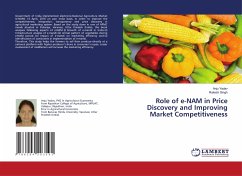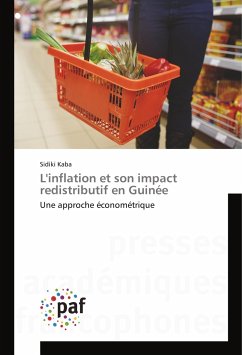
A study on price discovery and causality between spot and future
a case of India
Versandkostenfrei!
Versandfertig in 6-10 Tagen
32,99 €
inkl. MwSt.

PAYBACK Punkte
16 °P sammeln!
The Indian capital market has witnessed many changes in the past decade. A major reform undertaken by SEBI was the introduction of derivative products: Index future, Index options, stock options and stock future, in a phased manner starting from June 2000. The analysis of price discovery and information flow across cash and future markets has received much attention from academicians regulators and practitioners such as . This is due to the fact that the issue is in inextricably bound up to the key central notion in financial theory, notable market efficiency and arbitrage. In perfect efficien...
The Indian capital market has witnessed many changes in the past decade. A major reform undertaken by SEBI was the introduction of derivative products: Index future, Index options, stock options and stock future, in a phased manner starting from June 2000. The analysis of price discovery and information flow across cash and future markets has received much attention from academicians regulators and practitioners such as . This is due to the fact that the issue is in inextricably bound up to the key central notion in financial theory, notable market efficiency and arbitrage. In perfect efficient markets, profitable arbitrage should not exist, as price adjust simultaneously and fully to incoming information, therefore, new information disseminating in to the market should be immediately reflected in cash and future prices by triggering trading activity in one or all of the markets simultaneous. As a result, there should be no systematic lagged responses long enough to profitably exploit Thus this study seeks to analyse empirically the price discovery and causal relationship between spot and future market












